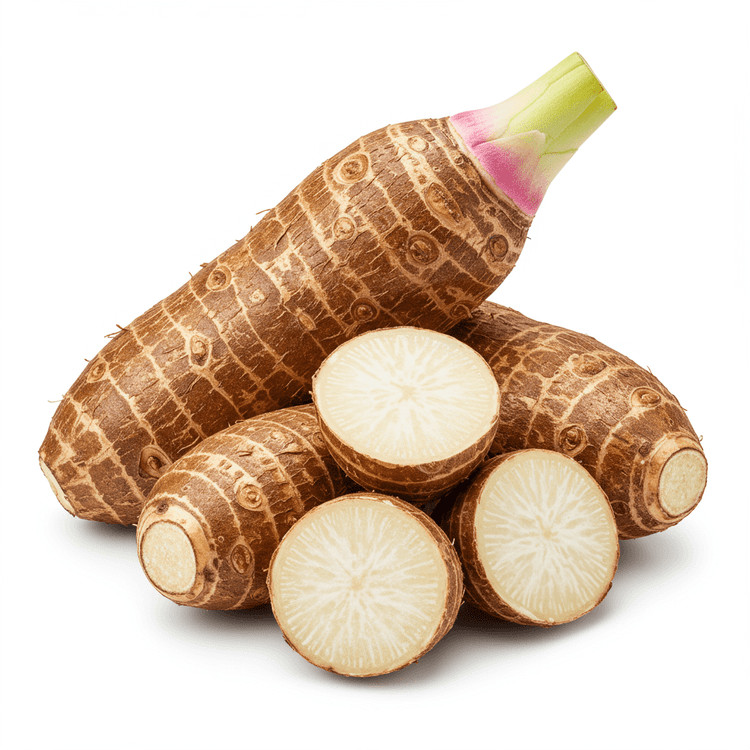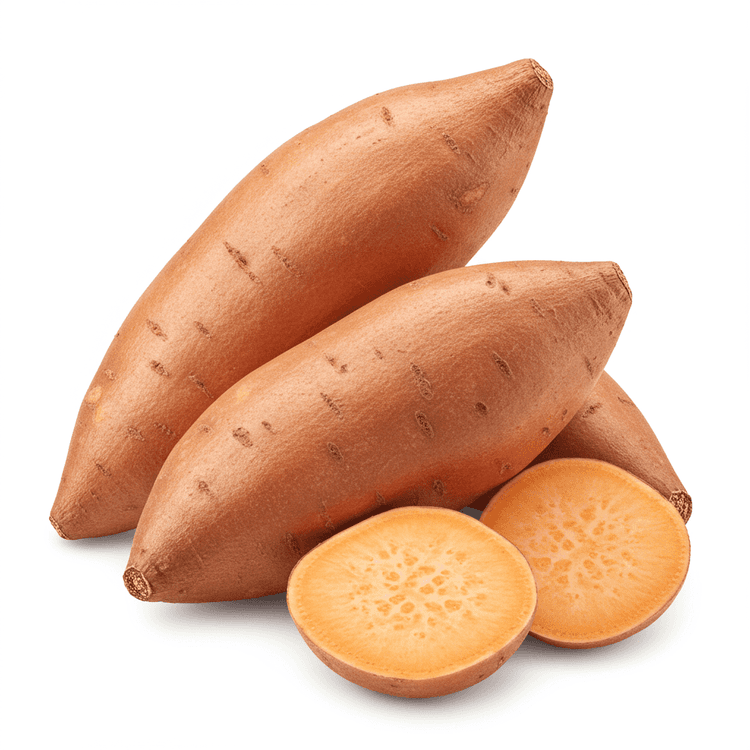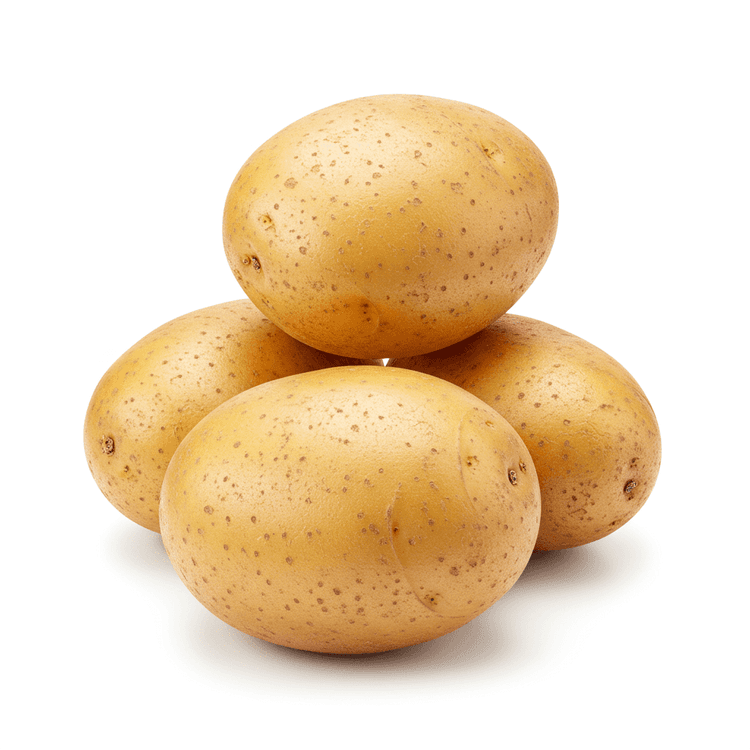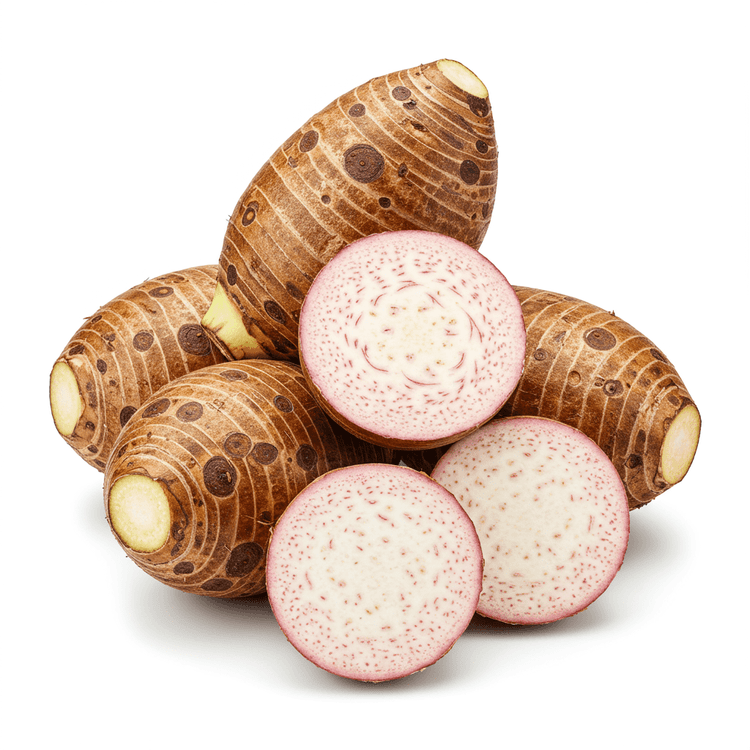
Elephant Yam
Elephant Yam, also known as Suran, is a large, starchy tuber vegetable with a rough, brown, textured skin and a pale pink to white flesh. When cooked, Elephant Yam offers a unique flavor profile: slightly sweet and earthy with a hint of nuttiness. Its texture becomes soft and creamy, similar to a potato but with a more substantial bite. Elephant Yam's distinctive appearance and nutritional value make it a popular ingredient in various cuisines, especially in South and Southeast Asia. Discover the culinary possibilities of this versatile root vegetable.
Common Uses
- Elephant Yam can be roasted or baked as a flavorful alternative to potatoes. Roasting brings out its natural sweetness and creates a crispy exterior and a fluffy interior. Roasting is a great way to showcase this unique root vegetable.
- Elephant Yam makes a delicious addition to stews and curries. Its creamy texture and slightly sweet flavor add depth and richness to these dishes. Cook until tender for best results.
- Elephant Yam can be mashed and seasoned to create a flavorful side dish. Mashed Elephant Yam provides a unique alternative to mashed potatoes with its distinct flavor profile and creamy texture.
- Elephant Yam can be fried into chips or fritters. The natural starch content allows for crispy and golden-brown results when fried. These chips make a unique and delicious snack or appetizer.
- Elephant Yam is often pickled and used in condiments and relishes. Pickling preserves its unique flavor and provides a tangy and refreshing element to various dishes, pairing well with spicy meals.
- Elephant Yam flour is sometimes used as a binding agent in certain types of gluten-free baked goods. The flour assists in providing structure and moisture and is a gluten-free alternative in such recipes.
Nutrition (per serving)
Nutrition (per serving)
Calories
97.0kcal (4.85%)
Protein
1.5g (3%)
Carbs
23.7g (8.62%)
Sugars
0.0g
Healthy Fat
0.1g
Unhealthy Fat
0.0g
% Daily Value based on a 2000 calorie diet
Nutrition (per serving)
Calories
97.0kcal (4.85%)
Protein
1.5g (3%)
Carbs
23.7g (8.62%)
Sugars
0.0g
Healthy Fat
0.1g
Unhealthy Fat
0.0g
% Daily Value based on a 2000 calorie diet
Health Benefits
- Rich in fiber, aiding in digestive health and promoting regularity.
- Contains antioxidants, which help protect cells from damage caused by free radicals.
- May assist in weight management due to its low calorie and high fiber content, promoting satiety.
- Good source of carbohydrates, providing energy for daily activities.
- Contains essential vitamins and minerals, contributing to overall well-being.
- May help regulate blood sugar levels due to its slow-digesting carbohydrates.
Substitutes
Chefadora AI is here.
Experience smarter, stress-free cooking.
Storage Tips
Elephant yam should be stored in a cool, dry, and well-ventilated place away from direct sunlight. It's best to keep it at room temperature. Avoid storing it in the refrigerator, as cold temperatures can cause it to spoil more quickly. If cut, wrap the exposed portion tightly in plastic wrap and store in the refrigerator; use within a few days. Ensure the storage area has good air circulation to prevent mold growth.
Marnirni-apinthi Building, Lot Fourteen,
North Terrace, Adelaide, South Australia, 5000
Australia




